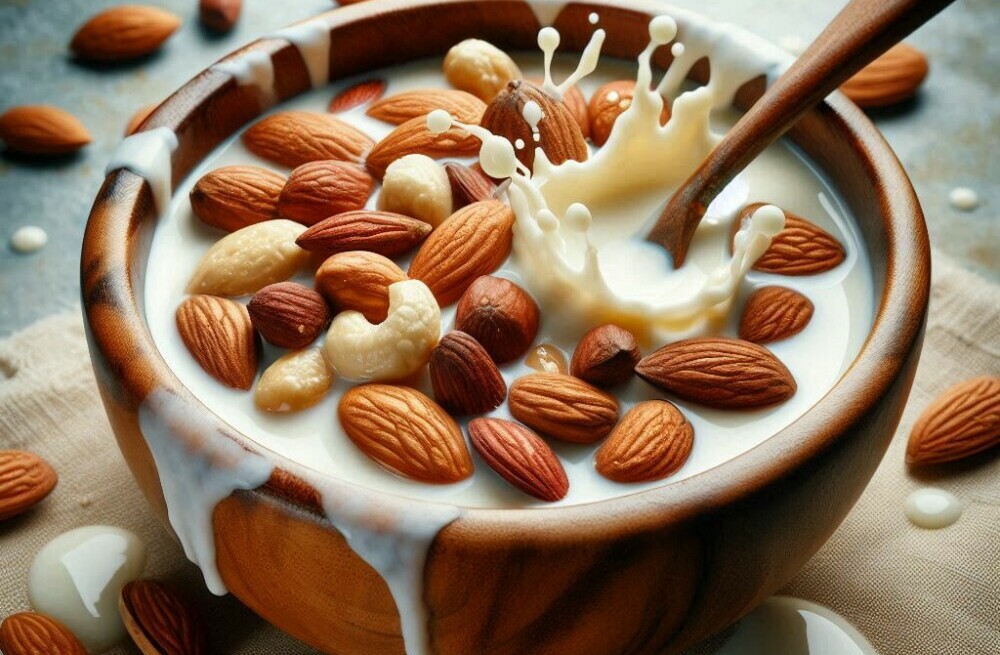
In the quest for optimal mental wellness, the power of nutrition cannot be overstated. What you eat plays a crucial role in how you feel, think, and interact with the world. Here below is your ultimate guide to fueling your mind through nutrition. The brain and gut share a deep connection, often referred to as the “gut-brain axis.” This concept sounds complex, but it essentially means that what we eat can directly affect how we feel, think, and even behave. The gut is often called the “second brain” because it produces many of the same neurotransmitters, like serotonin and dopamine, which are crucial for regulating mood and cognitive function.
Key nutrients play a vital role in maintaining mental health. Omega-3 fatty acids, found in fatty fish, flax seeds, and walnuts, are essential for brain health. These fats help build brain cells and reduce inflammation, which is linked to many mental health disorders. Another critical player is B vitamins, particularly B12 and folate, which are essential for producing brain chemicals that influence mood and other brain functions. A deficiency in these vitamins can lead to significant mood changes, including depression and anxiety.
Research consistently shows a strong relationship between diet and mental health. Numerous studies indicate that diets rich in fruits, vegetables, whole grains, and lean proteins contribute to lower risks of depression, anxiety, and other mental health issues. On the flip side, diets high in processed foods, sugars, and unhealthy fats are often linked to higher instances of mental health conditions.
Understanding the impact of nutrition on your mental state isn’t just about avoiding certain foods; it involves recognizing the vital role nutrients play in our cognitive processes. By prioritizing nutrient-rich foods, you’re not only supporting your physical health but also promoting mental well-being.
Foods That Boost Your Mood: Nutritional Powerhouses
Omega-3 fatty acids are fantastic for brain health. Found in foods like salmon, flaxseeds, and walnuts, these fats help your brain function at its best. They play a big role in mood regulation and have been shown to reduce symptoms of depression and anxiety.
Antioxidants also do wonders for mental health. Found in colorful fruits and vegetables, like berries, citrus fruits, and greens, antioxidants protect your brain from oxidative stress. This stress can lead to inflammation, which is connected to various mental health issues.

Power of Berries for Optimal Health and Wellness
- Rich in Antioxidants: Berries, such as blueberries, strawberries, and raspberries, are packed with antioxidants like flavonoids. These compounds help combat oxidative stress and protect brain cells from damage.
- Enhanced Cognitive Function: Regular consumption of berries has been linked to improved memory and cognitive function. The antioxidants in berries may enhance brain plasticity, which is crucial for learning and memory.
- Anti-Inflammatory Properties: Berries contain anti-inflammatory compounds that help reduce inflammation in the brain. Chronic inflammation is associated with neurodegenerative diseases, so reducing it can support long-term brain health
- Support for Healthy Aging: The nutrients in berries, including vitamins C and E, contribute to overall brain health and may help slow age-related cognitive decline. They support neuroprotection and enhance brain function in older adults.
- Boosted Brain Communication: Berries can improve communication between brain cells by promoting the production of certain proteins involved in brain cell communication. This can support better cognitive function and mental clarity.
Your brain needs certain vitamins and minerals to function correctly. Vitamin D, which you can get from sunlight as well as foods like fortified dairy and fatty fish, is crucial for mood regulation. Low levels of Vitamin D have been linked to various mood disorders, including depression. Zinc and magnesium, found in nuts, seeds, and leafy greens, are also essential. These minerals support brain function and have been linked to reduced anxiety and improved mood.
The power of probiotics shouldn’t be overlooked, either. These beneficial bacteria, found in fermented foods like yogurt, kefir, and sauerkraut, support gut health and, by extension, mental health. A healthy gut can produce more of the neurotransmitters that regulate mood, like serotonin.
Eating a colorful and balanced diet isn’t just about keeping your body in shape. It’s a direct line to a happier, more balanced mind. Incorporating these nutritional powerhouses into everyday meals can make a real difference in how you feel day to day.
The Consequences of Poor Nutrition on Mental Health
High sugar intake and processed foods can lead to energy crashes and mood swings thus creating a roller-coaster of moods and energy levels. These foods cause a rapid spike in blood sugar followed by a crash, leaving you feeling irritable and fatigued. Over time, this can contribute to anxiety and mood swings. Opt for whole, unprocessed foods to keep your mood steady and your energy levels balanced.Relying too much on junk food means missing out on the goodness from nutrient-dense foods. This lack of essential nutrients can compromise your brain’s health and performance, impacting your ability to focus, remember, and even your overall mental sharpness.
Poor dietary habits don’t just impact your daily mood; they have long-term consequences for mental health. Habits like consuming too many sugary drinks, fast food, and snacks high in trans fats can increase inflammation in the brain. Chronic inflammation is linked to various mental health issues, including depression.
Paying attention to how different foods make you feel can help you make informed food choices. Poor nutrition can also exacerbate existing mental health conditions. If you’re dealing with something like anxiety or depression, a poor diet can make managing these conditions even more challenging. Nutrient deficiencies can interfere with medication effectiveness and complicate treatment. Eating mindfully can help you make better choices and recognize which foods contribute positively to your mental health. When eating avoid distract e.g from television and phones helping you to Focus solely on the experience of eating, taking your time with each bite. Chew thoroughly and savor the flavors, textures, and aromas of your food.
Meal planning for mental wellness doesn’t have to be complicated. Start by including a variety of foods that are known to boost brain health, like fruits, vegetables, whole grains, and lean proteins. Consistency is key, so try to create a weekly meal plan that incorporates these foods regularly.
Smart choices for better Mental well-being:

Incorporating brain-boosting foods into your diet can be easy with a few habits. Snacking on nuts and seeds, adding berries to your breakfast, or using leafy greens in salads and smoothies are simple changes that make a big difference.Nuts and seeds, particularly almonds, pumpkin seeds, and flax seeds, are excellent sources of magnesium, which helps manage stress and anxiety. Dark chocolate, especially varieties with high cocoa content, can boost mood by increasing serotonin levels. Enjoy it in moderation as a satisfying treat that supports mental wellness.Look for varieties with at least 70% cocoa for the best benefits.
Replacing sugary drinks with water or herbal teas can also have a positive impact on your overall well-being. Emphasis is hereby given to the importance of staying hydrated. Do you remember a time when a headache vanished shortly after you drank a substantial amount of water? That’s what we are talking about. Water is vital for overall health and mental performance. Dehydration can lead to fatigue, poor concentration, and mood swings. Aim to drink plenty of water throughout the day to keep your mind sharp.
Lifestyle changes support both mental and nutritional health. Regular physical activity, good sleep habits, and mindfulness practices like meditation can all complement the benefits of a nutritious diet. Getting enough sleep, for example, allows your brain to repair and rejuvenate, optimizing the benefits of wholesome food choices.
Experiment with different recipes and cooking methods to make healthy eating more enjoyable. Trying out new spices, cooking styles, or even different cuisines can add variety and excitement to your meals, making it easier to stick to brain-healthy choices.
Remember, it’s not about being perfect; it’s about making better choices more often than not. Changing your diet to support mental health is a journey. Small, consistent changes can lead to big improvements over time. Eating mindfully helps you make conscious food choices that benefit your mental health and supports a positive relationship with food.Stay patient with yourself and celebrate the positive changes you make along the way.If you require additional assistance after reading this article, it is strongly recommended that you consult with your primary care provider or dietitian for further guidance.

Hi!
It’s interesting that nutrition affects so much in our lives, even our mental state. It’s fascinating to learn how specific nutrients, like Omega-3s and B vitamins, directly impact mood and cognitive function. I’ve noticed in my own life that when I prioritize a balanced diet, my mood and mental clarity improve significantly.
Are there any signs or symptoms that might indicate when poor nutrition is beginning to negatively affect mental health? how would one know poor nutrition is the culprit and not something else?
– Scott
Hi Scott,
Thank you for reading this article and for your comments. You’re absolutely right—nutrition has a profound impact on both mental and physical health. It’s great to hear that you’ve noticed positive changes when you focus on a balanced diet . Identifying when poor nutrition might be affecting your mental well-being can be tricky, as symptoms can overlap with those of other issues. However, there are some signs that might suggest a link between your diet and mental health.For instance ; struggling with focus or memory can sometimes be linked to poor nutrition. Nutrients like Omega-3s, B vitamins, and antioxidants are crucial for cognitive function and inadequate intakes can lead to cognitive decline. Consulting with a health professional is crucial as they can differentiate between nutritional issues and other potential causes of mental health symptoms.
Hey Grace –
Maintaining a balanced diet is challenging in this go-go world. However, this article provides sound advice. Eating Salmon, and colorful fruits, and incorporating probiotics will enable anyone to consume a variety of foods. I find drinking pure water bland at times.
Do you add sweeteners to water? Or do you simply drink tea, eat or coffee?
Hello Godwin,
It’s true that maintaining a balanced diet can be challenging, especially with a busy lifestyle. When it comes to making water more enjoyable, there are a few options you might consider. If you find pure water a bit bland, you could try adding natural flavorings like slices of cucumber, lemon, lime or berries. These add a touch of flavor without extra calories or sugars. Herbal teal is a good alternative because these teas are naturally flavorful , they come in a variety of flavors, like chamomile, peppermint, or hibiscus, and can be a good way to stay hydrated. They can be consumed hot or iced, and you can experiment with different types to find what you like best.Unsweetened coffee can also be a great alternative but be mindful of the caffeine content and any added sugars or creamers.
Other alternatives include diluted 100% fruit juice, flavored sparkling water, look for those without added sugars or artificial sweeteners. If involved in physical activities whereby electrolytes are lost through sweating, one can consider flavored electrolyte water.